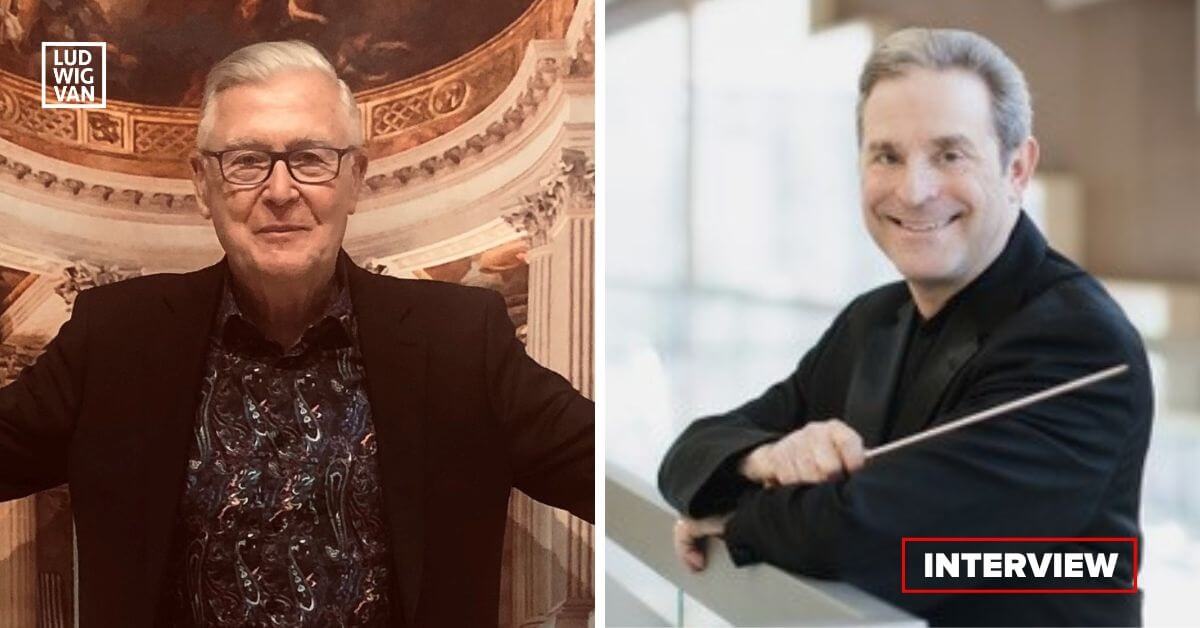
In 2021, the Royal Conservatory of Music had a roaring success with Stephen Sondheim’s Follies in Concert. Riding the wave of that triumph comes Sondheim’s A Little Night Music in Concert, showcasing the many talents of Cynthia Dale and Eric McCormack (who were also the stars of Follies).
The show opens at Koerner Hall on Friday (May 26), but be warned. Friday and Sunday are practically sold out, so your best bet for a ticket are the two Saturday performances.
A Little Night Music premiered on Broadway in 1973, with music and lyrics by Sondheim and book by Hugh Wheeler. The musical was inspired by the 1955 Ingmar Bergman film Smiles of a Summer Night. Nominated for a whopping 12 Tony Awards, the production won six, including Best Musical. The plot deals with a weekend in the country and various romantic entanglements.
Over the years, the show has become the darling of both musical theatre and opera companies. It has literally never been off the stage, and by that, I mean worldwide. The musical was even made into a 1977 film starring Elizabeth Taylor.
Stage director Richard Ouzounian, who also helmed Follies, is arguably one of Canada’s most knowledgeable gurus on both musical theatre and Sondheim. The big surprise is David Briskin as music director. Ballet aficionados will know Briskin as the esteemed conductor of the National Ballet.
Both men joined me for a lively Zoom conversation about Sondheim and A Little Night Music. I talked to Ouzounian first, with Briskin joining me later, and I discovered that they are as excited about the show as any Sondheim aficionado.
Richard Ouzounian on Sondheim and A Little Night Music
I gather that the journey taken by A Little Night Music is a bit smoother than Follies.
Follies was meant to both celebrate Sondheim’s 90th birthday and be a fundraising gala for the RCM. We were one of the first shows to hit the stage after the pandemic, but we could only have 50% capacity. Five days before we opened, Premier Doug Ford announced theatres could have full capacity. It was not easy selling 50% of the house in five days.
So how did Night Music come to be?
We all had such fun doing Follies that Mervon Mehta, the RCM’s executive director of performing arts, asked, What do we do next?
Koerner Hall has such beautiful acoustics that it makes it a wonderful place to hear a musical score. The two most “orchestra” shows of Sondheim are A Little Night Music and Sweeney Todd. We chose the former because it requires less resources in terms of singers. It’s a smaller show. When asked, both Cynthia Dale and Eric McCormack immediately said they’d come back.
The show is not billed as a gala this year.
No — it’s part of the RCM’s regular season, with an added fourth show. What’s interesting is that these performances are a kind of celebration because it is A Little Night Music’s 50th anniversary. It opened in 1973.
How did David Briskin become involved? I have to say I’m really looking forward to him conducting Night Music. For me, he’s anchored in the ballet world.
Paul Sportelli was the music director for Follies, but he’s currently involved in another show. David and I have been friends for years, so I knew his background. He actually began his conducting career in summer stock, putting on a different musical each week. He’s a real musical theatre junkie.
I understand you’re using an unusual version of the show.
It’s the original orchestration by the great Jonathan Tunick that has six more strings. Tunick is one of Broadway’s best arrangers, and when it comes to Sondheim, he is almost psychic in interpreting the composer. Sondheim trusted him completely.
What has your rehearsal period been like?
We turned the rehearsal process on its ear. The stage director doesn’t usually sit in on the music rehearsals, but David and I were both there. The first week we had one-on-one with each singer individually, where we would talk about the songs and explore interpretations. It was a great experience, exhilarating, even. The singers and I could see David’s respect for Sondheim, and how thoroughly he knew the show.
Has Night Music always been a favourite of yours?
To tell the truth, no, at least not until we started to work on it. When the show first opened, I was just 23. I was too young to appreciate it.
Isn’t it true that concert versions usually cut the book part?
Yes. They usually include all the songs, and just enough text to stitch the songs together. We’re doing the whole show — songs and text. We’re even having a simple set of birch trees designed by Nick Blais and choreography by Robin Calvert.
Sondheim has the reputation of being musically difficult.
That’s true. For example, he has underscores, where someone is singing one song, while another song plays beneath. Also, the songs are always changing meaning, and a reprise always conveys something different. For example, there is a section of five earlier songs that are sung, not by the original characters, but by others, which changes everything. There are also double and triple rhymes in the lyrics.
I know that Hugh Wheeler’s book is much admired.
And the cast is discovering just what a great book it is. We all are. Wheeler was inspired by the Bergman film, but he made changes, so you could say that his book was “suggested” by the film. Wheeler’s tone is different. In the film, Madame Armfeldt is just a tiny role, while Desirée has a son, and not a daughter. Wheeler has also included literary allusions.
Sondheim always had great collaborators. Like Wheeler, they gave him the tools to create the words and music. It’s magical the way the book works with the music. The more we explore the show, the more complex we find the score. At all times, a whole range of human emotions are at the centre of the songs.
What is the magic of Sondheim to you?
It’s the same as growing into Shakespeare. You can see a Shakespeare play many times and always find something different. Sondheim is like that. You love his musicals differently, depending on the age you are. You always find new riches.
Has anything influenced your approach to A Little Night Music?
Harold Prince directed the original Broadway production, and he told his cast that he wanted to see dark chocolate showing through. My heart belongs with Hal Prince.

Davis Briskin on the Music of Stephen Sondheim & A Little Night Music
What research did you do, David, coming back to musical theatre after so many years?
Finding out what a composer has to say about his work is important. I did a lot of reading on how Sondheim approaches composing, both through his own essays, and what others have written. I also poked around YouTube to see what I could find on him.
Watching Sondheim in interviews was fascinating. He was usually looking into the distance and stroking his beard. You could see the wheels turning in his head. Those old interviews were very illuminating. I believe that Sondheim might have been on the spectrum — Asperger Syndrome. He loved puzzles and word games, and his energy level was a bit too much.
As for A Little Night Music itself, it demanded in depth research because of its complexities.
Is Night Music a favourite of yours?
I’ve always loved the show, but I never had a chance to do it. That’s why this has been a labour of love. It’s been more than just routine. It’s been a project, if you know what I mean.
What do you think you have brought to the show as the music director?
I think I bring a broader musical perspective. I trained as a singer myself, and I coached singers for auditions. I have conducted operas so I know the voice. And then there is my knowledge of classical composers like Ravel and Debussy who influenced Sondheim. Most of all, musicals have been a big part of my life, given all the years I spent in summer stock.
How did you approach working with these musical theatre actors?
I knew they saw me as the National Ballet music director, so I had to build trust, and I gained that trust through the work we did together. They were receptive to all the detail and thought I brought to the score, based on my research. Once I had their trust, I could give diction notes, and work on clarifying lyrics.
It’s been great to be in a room with musical theatre stars again. In reality, being music director on this show meant going back to a set of tools that I hadn’t used in years. It’s actually been refreshing — a nice change. Working on Sondheim is such a joy.
What is at the heart of Sondheim’s music in general?
It’s the richness, as well as his craft and intelligence. The score is filled with allusions to classical composers, particularly Ravel. I think that Sondheim wrote 20th century art songs. Not only that, every single number has its own identity, and his approach to rhyme is brilliant.
He’d start with a scene, and then do the lyrics and melody, but really, his lyrics are the most important thing. His songs are all about the text, and the relationship of rhythm to text. His shows lie in the text. Singers just have to follow the line of the song. It’s all there. They should just let the songs carry them — just be a vessel for the music.
In terms of the history of musical theatre, I believe that Sondheim is on a parallel road, blazing his own trail.
What about the score of A Little Night Music?
Sondheim deliberately wrote all the music in 3/4 time — waltz time. The construct of the piece is triangular — such as three people in a relationship, so their music overlaps, with three tunes fitting together like a fugue. This score is heady stuff.
Night Music is unusual because it has five singers who function as a Greek chorus.
In fact, when original Broadway director Hal Prince first got the score, he said, “What am I going to do with them?” They were originally called The Quintet, but over the years, they have become known as the Liebeslieder Singers. In usual productions, they are musical theatre performers. In casting this show, however, Richard made the decision that they should all be trained classical voices. He wanted an operatic tone for them.
What is the overall shape of the orchestra?
You could call it a chamber orchestra or a salon orchestra. There is no rhythm section, and instead of a piano, there is the celeste.
Where is the orchestra coming from?
It’s the RCM’s Glenn Gould School Orchestra. The school is heavy on strings, and so is the score for A Little Night Music, so it’s a perfect match. Using the students means we don’t have to double. In a Broadway orchestra, one player might be doing the saxophone, clarinet and flute — in other words, a range of woodwinds — but we can have dedicated players.
Richard mentioned that you were using Jon Tunick’s original orchestration.
This score is like a point of departure because it marks the growth of the show by notating when things have changed, so it’s a fund of background information.
How did the National Ballet react to you working on Night Music?
They were excited for me, while I’m excited to show audiences a side of me no one knows.
Check for tickets [HERE].
#LUDWIGVAN
Get the daily arts news straight to your inbox.



